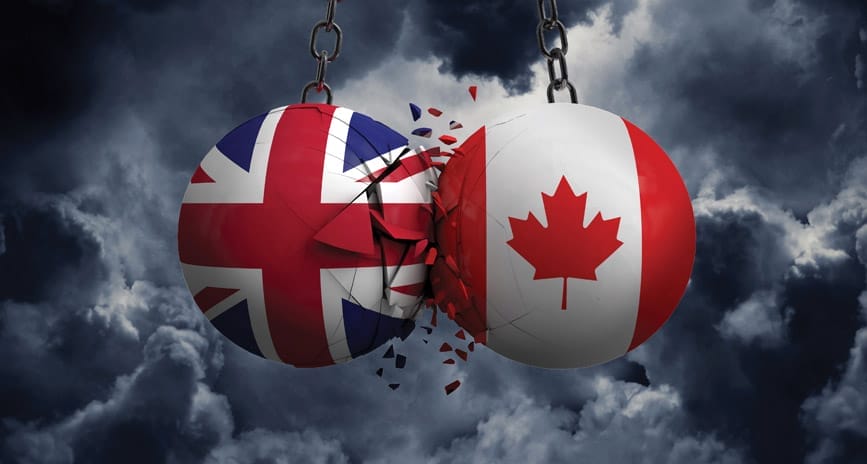The summer is often a quiet time for news and the last few months (weather apart!) have been no exception as the holiday season led to the normal exodus to holiday resorts, but sometimes it is the combination of lots of small stories that makes big news. Recently there have been a lot of stories that paint a highly positive picture for exporters and the opportunities that arise for exporters of all sizes that incrementally are bricks building the wall.
The UK Tourism industry who are expected to attract 37.5m overseas visits this year with a visitor spend of £31bn deserves a seasonal plug.
It isn’t just Airports and large hotels that benefit, so do local attractions and Airbnb hosts. Manchester is the 3rd most popular town/city for staying visits, behind London and Edinburgh, with Liverpool 5th, Leeds 11th, Newcastle-upon-Tyne 13th and York 16th.
Services have long been a critical part of the UK economy and the UK remains the 2nd largest global exporter of services in the world accounting for a fraction under half of all UK exports. According to the Resolution Foundation, contrary to expectations, UK services exports were 15% higher in 2022 than the previous year and 16% higher to the EU. They refer to Britain as a services superpower that holds the key to stronger growth in the decade ahead. The City of London Corporation see the potential for further rapid growth to the end of the decade and are pushing for government to create a “Services Council” to mirror the No10 Business Council to support the strategic ambitions.
Who knew? Well, regular readers of this column may recall that I have highlighted how important a part of many recent trade deals have been in relation to services.
This was an element passed over by EU trade deals that preferred to focus on goods. Services are often significantly greener than goods by not requiring shipping, thus ticking another box of government aims. Services exports to EU are less hampered by Brexit than goods as there never was a real single market in services as The Economist points out. The Government refer to these as “modern trade deals” or “2.0” and targets making them suitable for the digital age. These are ongoing with countries as diverse as India, Mexico and Switzerland alongside those already agreed with CPTPP, Japan, Australia and several more.
The Electronic Trade Documents Act (ETDA) is implemented in September, and according to a survey conducted by the Institute of Export and International Trade approximately 75% of respondents believe this will have a positive effect on their businesses. Government Minister Paul Scully said that this widely welcomed legislation would place the UK as a thought leader for others to follow and would save businesses an estimated £1.1bn over the next decade by enhancing the smooth and efficient operation of exporting. Labour opposition said they saw no UK business being disadvantaged – a welcome agreement!
Small business bonanza as the Federation of Small Business (FSB) highlight that 20% of their members are already exporting and a further 10% actively considering doing so. This is all the more impressive when you consider that many FSB members include local service businesses including restaurants, pubs and bars, hairdressers and beauty salons, local accountants and lawyers, who may have less likelihood of exporting. Even these businesses could export: – the pub or restaurant that targets tourists whilst the legal and accountancy sector are significant exporters.
So where are all the members exporting to?
95% export to Europe, Turkey and Russia, 61% to North America, 56% to Asia and the Middle East, 49% to Australasia, 35% to Africa and 21% to Latin America. None of that is a surprise, but for anyone considering exporting, or expanding their exporting activities, it could provide a roadmap of potential.
What do all of these have in common?
They highlight the range of opportunities for exporting and that size of business is irrelevant. There are even many micro businesses that are exporting as a normal part of their business activity, some not realising that they are doing so. The internet brings the world together and enables anyone to promote their business across the world.
Your next customer could come from anywhere.
Exporting should be a profitable and integral part of your business with like-minded markets around the world, many of whom are already fans of UK style and quality, providing a plethora of opportunities.
Whether you are in hospitality, a graphic designer, or making pickles, It is never to early or too late in a business to start to export, you just need to take the next step.

Useful links:
gov.uk/exporting
Made in the UK, Sold to the World
export.org.uk
britishchambers.org.uk
Tony Goodman MBE is a successful exporter and has been doing so through a variety of different businesses. He is currently Marketing Advisor at Forest and Co who specialise in offering guidance on branding, exporting and sales: www.forestandco.com






